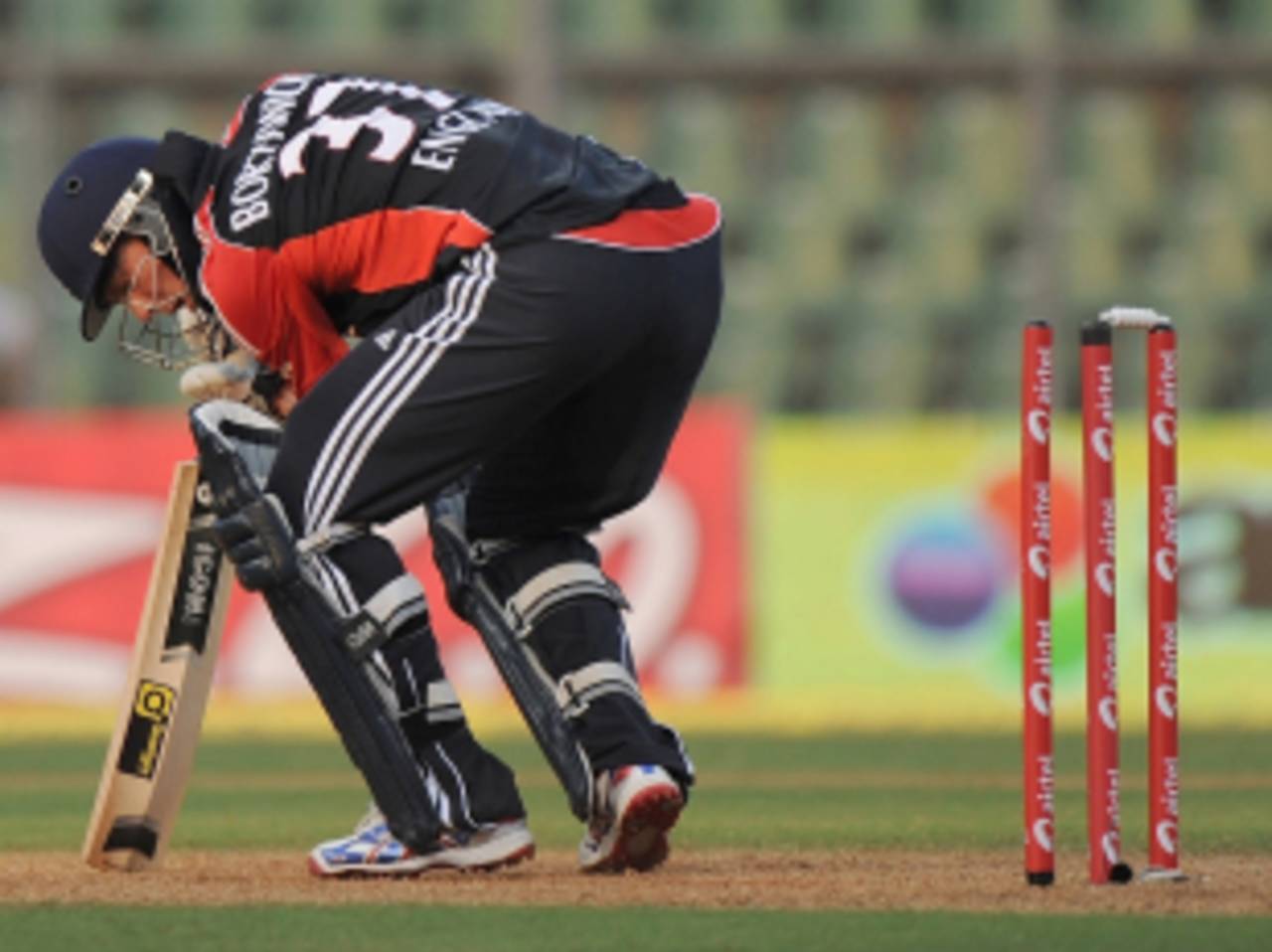The India v England ODI series has seen the boot not just on the other foot, but planted firmly up England's backside. They might possibly have won at Mohali if they had been sharper in the field, though even that is pretty doubtful, but otherwise they have been hopelessly outclassed.
This is hardly surprising. Other than changing the captain who opens the batting, there is essentially no difference between the current team and the one that wasn't good enough to get beyond the World Cup quarter-final. It was clear even then that the team was not really up to the task of winning ODIs on South Asian pitches, especially against India.
One can pick apart the various flaws in certain players, which are in several cases partly explained by their lack of experience, but the main problem is strategic: England are playing 50-over cricket as if it were a speeded-up Test match, while India play as though it's the stretch-limo version of Twenty20.
The most obvious indication of this is the persistence with Jonathan Trott at No. 3. This is not meant as a criticism of him – his job is to hang around all through the innings and give the strike to the hitter at the other end, and he does it very well indeed – it is the job description itself which is at fault. It is a strategy that assumes that too many wickets will be lost too quickly unless there is an anchor keeping one end safe, which implies that they do not believe in all-out attack, or at least that they have little confidence in their ability to carry such a policy off.
Despite this, Alastair Cook and Andy Flower have both gone out of their way to praise Trott and have made it very clear that he is an integral part of their ODI strategy, even if Flower slightly qualified that by adding the rider “unless and until a better player comes along”. England fans can therefore look forward to more gloom and despondency during the rest of the winter's away ODIs against Sri Lanka and Pakistan (wherever “Pakistan” is actually situated).
One possible explanation is that the England management are stupid.
However, stupidity is not one of Flower's most obvious qualities. Quite the opposite: he gives every impression of being someone who thinks deeply about the England team's needs and how they should reach their goals.
While the way Trott plays is not ideal for Asian conditions, it makes a lot of sense in English conditions where it's not uncommon for a side to lose three or four wickets in the first ten overs. England's recent home ODI record is pretty good, and Trott has featured well in many of the wins, as he did in the series that England won in South Africa two winters ago. Conditions in Australia and New Zealand are similar to those in South Africa and England respectively. England's record in ODIs in Australia is pretty poor, including on the last visit, but since those series have been at the fag-end of a mentally and physically tiring Ashes series, they have probably not been ideal for assessing the ODI team.
The point being that what matters in ODI cricket is the World Cup. Australia may be top of the ODI rankings by a country mile, but who cares? It's India who are World Cup champions, and that's all that people really recognise. The rankings only cause any interest in the months leading up to a World Cup when people want to make some assessment of who are the potential winners of the main tournament.
Since the next World Cup is in Australia and New Zealand, what England need to do is to develop a team which can play well in Australasia. Nothing else matters. Having a team that plays poorly in Asia means that they spend a lot of time getting laughed at as well acres of hand-wringing press comment about how useless the ODI team is whenever they get thrashed by India from here to breakfast time, but for the next decade or so, until the World Cup circus returns to southern Asia, that's just a distraction.
Depressing though the current series has been, Flower is gambling in pursuit of the prize in 2015. We England fans have to hope he's right.
